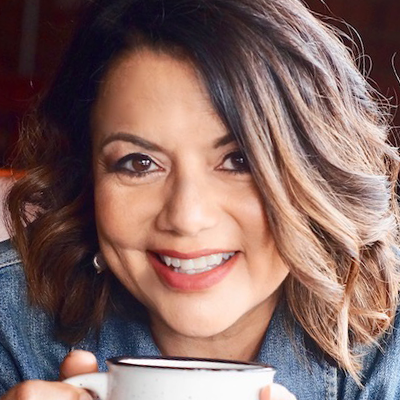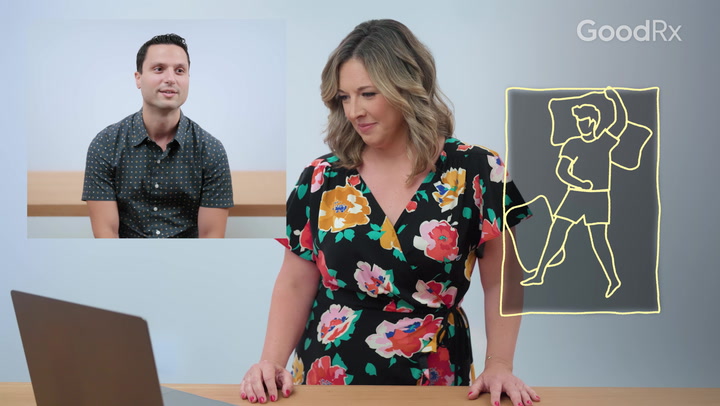
11 Strategies You Can Try to Fall Asleep Fast
Key takeaways:
It’s hard to fall asleep sometimes. But doing things like deep breathing and taking a warm bath before bedtime can help.
You may have trouble sleeping if you’re dealing with depression or anxiety or taking certain medications like decongestants or beta blockers.
Talk to your healthcare provider if your sleep problems last longer than a few weeks or months. They can offer you treatment options or refer you to a therapist or sleep specialist.

You probably know what it’s like to hit the sack and doze off right away. It feels great, especially if it’s followed by good rest all night long.
But what happens if you lie awake for hours when your head hits your pillow? It’s fairly common. Close to 15% of adults in the U.S. struggle to fall asleep most days. However, you may only need to make a few changes for better shuteye.
Helpful tips to fall asleep fast
Here’s how to set yourself up to fall asleep fast when you go to bed.
Search and compare options
1. Keep consistent sleep and wake times
Routine is the key to falling asleep fast. Have a fixed bedtime and wake-up time, even on the weekends. And shoot for 7 to 9 hours of sleep every night.
2. Practice deep breathing
Deep breathing can relax your mind and body, lower your heart rate and blood pressure, and help you nod off.
Kenneth Lee, MD, a neurologist and medical director of the University of Chicago’s Sleep Disorders Center, recommends a technique called “diaphragmatic” breathing:
Place your hands on your stomach and take deep breaths.
Feel your stomach expand.
Hold the breath for a few seconds and then slowly exhale.
Repeat for a few minutes.
3. Turn off tech
You’ve probably heard that the blue light from electronics can affect your ability to fall asleep. Backlit devices such as cell phones, tablets, and laptops all emit blue light.
Experts recommend you turn them off an hour or so before bedtime and store them out of your bedroom. Maintaining a dark bedroom may help signal to your brain that it’s time for bed.
4. Watch when you eat and drink
Timing is everything when it comes to eating, drinking, and snoozing.
Read more like this
Explore these related articles, suggested for readers like you.
To get to sleep quicker:
Eat earlier in the evening and avoid food within an hour before bedtime.
Ditch an after-dinner drink. It might make you feel relaxed, but over time it can interfere with good sleep.
Caffeine is a stimulant that can stay in your system for 6 hours or more. It’s best to drink your coffee in the morning and avoid caffeinated drinks in the afternoon and evening.
5. Relax your muscles
Many people get drowsy by doing exercises to relax their muscles. Lee recommends progressive muscle relaxation. He suggests you tense and relax each of your muscle groups 3 to 5 times as you work your way down from your head to your toes.
6. Take a warm bath or shower
A warm bath or shower can support your body’s natural cooling system as it gets ready for bed. Bathing an hour or two before sleep is a calming bedtime activity that might help you drift off quicker.
7. Cool your room
Set your room temperature below 70°F. Your body needs a cool environment to nod off.
8. Practice yoga before bed
Yoga has many relaxation benefits, including promoting slumber. Schedule regular yoga classes throughout your week or practice yoga poses and stretches for 15 minutes before bedtime.
9. Slip on a pair of socks
Wearing socks to bed and keeping your feet warm seems to have a positive impact on your ability to fall asleep. One small study found that people who wore socks to bed were able to nod off faster and snooze longer.
10. Reserve your bed for sleep and sex
Doing things like working or watching TV from bed can mess with your z’s. “The more time you spend in bed not sleeping, the more your body and mind find this as a normal behavior,” Lee tells GoodRx.
When you limit your bed activities to slumber and intimacy, you’re training yourself to zonk out quickly.
11. Get out of bed
If you can’t drift off after 15 to 20 minutes, get out of bed and do something relaxing until you get sleepy.
“We want the body to associate the bed with sleeping, not with not sleeping,” says Lee. “The more time you spend in bed awake, the more your body becomes accustomed to this.”
Why can’t I fall asleep?
There are many reasons why you may have trouble falling asleep. Your lifestyle, medications, or other health conditions can keep you awake.
Here are a few more common reasons:
Common medications like decongestants, beta blockers, and corticosteroids
Sleep disorders such as sleep apnea and restless leg syndrome
When to talk to your healthcare provider about not getting the rest you need
If you consistently have trouble falling or staying asleep for more than a few weeks, it’s probably time to talk with your provider. Insomnia that lasts a few weeks or months can be exhausting. It can make you feel grumpy all the time and interfere with work and relationships.
A healthcare provider can help you sort out what’s keeping you up at night. They can run tests to see if you’ve got something else going on like an underlying health condition. They can also adjust your medications or make lifestyle recommendations like getting more exercise during the day.
Your provider might refer you to a therapist for cognitive behavioral therapy (CBT) for insomnia. It’s an effective way to treat sleep issues. Or they may ask you to see a sleep specialist for testing.
The bottom line
Lots of people struggle to fall asleep fast. Trying things like deep breathing, keeping your room cool, and not eating a big meal before bedtime can help.
If you’ve tried these tips and your sleep still hasn’t improved, you may want to talk to your provider. They can check you for health conditions, talk to you about sleep aids, or send you to see a sleep specialist or counselor.
Why trust our experts?



References
American Psychological Association. (2013). Stress and sleep.
Centers for Disease Control and Prevention. (2020). Caffeine & long work hours.
Centers for Disease Control and Prevention. (2020). NIOSH training for nurses on shift work and long work hours.
Centers for Disease Control and Prevention. (2020). The color of the light affects the circadian rhythms.
Centers for Disease Control and Prevention. (2022). Sleep difficulties in adults: United States, 2020.
Chaput, J., et al. (2020). Sleep timing, sleep consistency, and health in adults: A systematic review. Applied Physiology, Nutrition, and Metabolism.
Colrain, I. M., et al. (2014). Alcohol and the sleeping brain. Handbook of Clinical Neurology.
Grandner, M. A., et al. (2017). Insomnia in primary care: Misreported, mishandled, and just plain missed. Journal of Clinical Sleep Medicine.
Haack, M., et al. (2019). Sleep deficiency and chronic pain: Potential underlying mechanisms and clinical implications. Neuropsychopharmacology.
Haghayegh, S., et al. (2019). Before-bedtime passive body heating by warm shower or bath to improve sleep: A systematic review and meta-analysis. Sleep Medicine Reviews.
Iao, S. I., et al. (2021). Associations between bedtime eating or drinking, sleep duration and wake after sleep onset: Findings from the American time use survey. British Journal of Nutrition.
InformedHealth.org. (2020). Insomnia: Relaxation techniques and sleeping habits. Institute for Quality and Efficiency in Health Care.
Jung, H., et al. (2010). Gastroesophageal reflux disease and sleep disorders: Evidence for a causal link and therapeutic implications. Journal of Neurogastroenterology and Motility.
Kline, C. E. (2014). The bidirectional relationship between exercise and sleep: Implications for exercise adherence and sleep improvement. American Journal of Lifestyle Medicine.
Ko, Y., et al. (2018). Effects of feet warming using bed socks on sleep quality and thermoregulatory responses in a cool environment. Journal of Psychological Anthropology.
National Center for Complementary and Integrative Health. (2021). Relaxation techniques: What you need to know.
Nuñez, A., et al. (2020). Smoke at night and sleep worse? The associations between cigarette smoking with insomnia severity and sleep duration. Sleep Health.
Nutt, D., et al. (2008). Sleep disorders as core symptoms of depression. Dialogues in Clinical Neuroscience.
Ong, J. C., et al. (2013). Insomnia and obstructive sleep apnea. Sleep Medicine Clinics.
Pacheco, D., et al. (2023). Best temperature for sleep. Sleep Foundation.
Pacheco, D., et al. (2023). How electronics affect sleep. Sleep Foundation.
Staner, L. (2003). Sleep and anxiety disorders. Dialogues in Clinical Neuroscience.
Turmel, D., et al. (2022). Tailored individual yoga practice improves sleep quality, fatigue, anxiety, and depression in chronic insomnia disorder. BioMed Central Psychiatry.
Watson, N. F., et al. (2015). Recommended amount of sleep for a healthy adult: A joint consensus statement of the American Academy of Sleep Medicine and Sleep Research Society. Journal of Clinical Sleep Medicine.





























